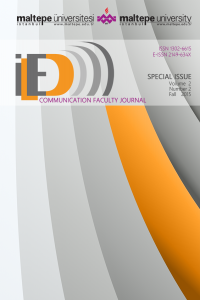Öz
Turkish society is continuously exposed to various processes of social transformation. These transformations can be evaluated as the reflections of the internal and external changes with economic, political, social and cultural dimensions. Neoliberalism, globalization, political Islam and identity politics might be seen as the main phenomena that determine the forms of social changes in Turkey. These wide arrays of changes have unsurprisingly found their reflections in many different spheres of cultural production. New Turkish Cinema and Contemporary Literature of Turkey have been prominent ones among these spheres. For instance, unlike the Yeşilçam Cinema, The New Turkish Cinema has problematized and revealed the previously ignored subjects of Turkish cinema through creating new narratives. At this juncture, this study is aimed to examine the changing structure of Turkey by considering categories of class, gender and ethnicity under the grand concept of space. The theoretical framework is constituted by Michel Foucault’s notion of heterotopia and Richard Sennett’s notion of confrontation to extensively address the issue of space in Turkey. The study used the focus group technique to get other opinions on exemplifying cases.
Key Words: New Turkish cinema, contemporary literature of Turkey, heterotopia, confrontation, space.
Anahtar Kelimeler
Ayrıntılar
| Birincil Dil | İngilizce |
|---|---|
| Bölüm | Makaleler |
| Yazarlar | |
| Yayımlanma Tarihi | 28 Mart 2016 |
| Yayımlandığı Sayı | Yıl 2015 Cilt: 2 Sayı: 2 |


